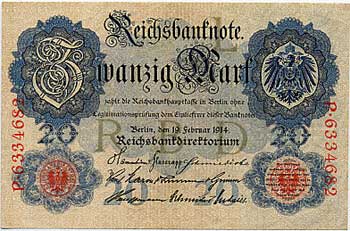Bloodline (The Prodigal)
 W
While the silent world around us slept,
I held him tightly, laughing, as I wept,
for the boy I thought I lost, now was found,
back to me his paths had wound,
back across my threshold he had stepped,
out of the dark shadows of the night he had leapt.
As the memories stirred within me sped,
I stroked and smoothed the curls
that lay upon his tiny head,
wondering where the paths now taken led,
of all that happened, all not said.
I thought of the seed planted in his mother’s womb,
of this tiny bud plucked before he could bloom,
of that fatal eve, my wife and son met their doom,
their lying, side-by-side, buried within their tombs.
Gently, I relinquished the boy I so lovingly embraced,
longing once again, to look upon his smiling face.
Letting go, we slowly slipped apart
until our fingers met and interlaced,
as I tried to not to lose my heart,
now fluttering in place.
Tuffs of gray glistened like silver strands against his raven hair,
The once youthful sparkle in his hazel eyes now gave way to stony stare.
The blush had left a pallor pale upon his cheeks,
And from his lips, the stench of death still reeked.
And then he chortled with a ghoulish glee,
And with a lunge, ripped my soul right out from me
Down and down, I plunged into the devil’s fiery pit,
consumed by scorching flames rising higher as he bit,
and then I saw the beaming light that was my son,
and back into this world I spun.
Not a drop wasted! Not a drop spilled!
Each delectable morsel tasted,
and devoured with relish,
until his wolfish appetite filled.
And when he was done,
this monster who was still my son,
across his lips he spread,
a toothy smile of crimson red.
And with a wink of the eye,
a tilt of the head,
we kissed, said our goodbyes,
and then,
under the fleeting mantle of the night,
away he sped,
away from the glimmer of daybreak,
away from morning's glorious spread
flooding the distant hills with sunlight.
Back to his tomb he fled,
away from the rooster’s raucous greeting,
into the dark shadows of the night retreating,
leaving me drained of life-blood,
wondering what more horrors lay ahead.
* * *
Forever bound by blood,
no longer bound by flesh,
entangled in the Maker’s murky labyrinth of mesh,
I am forever waylaid midway between life and death!
For the little boy I so loving adore,
has made me his mistress,
named me his whore.
Now, each night I sit and wait
for him to feast on me.
Unable to renegotiate my fate!
Unable to alter destiny!
Roxanne Hoffman, a former Wall Street banker, now answers a patient hotline for a major New York home health care provider. Her poetry is anthologized in The Bandana Republic: A Literary Anthology By Gang Members And Their Affiliates (Soft Skull Press) and can be heard during the independent film, “Love & The Vampire,” directed by David Gold. Her poems have recently appeared in Amaze: The Cinquain Journal, Best Poem: A Literary Journal, Champagne Shivers, Clockwise Cat, Danse Macabre, MOBIUS The Poetry Magazine, Mirror Dance, and the Canadian journal Inscribed. She and her husband own the small press, POETS WEAR PRADA, specializing in limited edition poetry chapbooks. Visit her online at poetswearprada.blogspot.com to find out how you can submit your poetry and micro fiction to their annual anthology.
Read more!
 No self-respecting literary magazine, esp. one celebrating its 20th gala issue, should be without immortal music. Gustav Mahler's nine symphonies create whole worlds unto themselves, each vivid, fantastical, and profound in turn. Click onto the following link to see a complete video performance (by the UC Davis Symphony Orchestra) of Mahler's timeless Resurrection Symphony.
No self-respecting literary magazine, esp. one celebrating its 20th gala issue, should be without immortal music. Gustav Mahler's nine symphonies create whole worlds unto themselves, each vivid, fantastical, and profound in turn. Click onto the following link to see a complete video performance (by the UC Davis Symphony Orchestra) of Mahler's timeless Resurrection Symphony.












